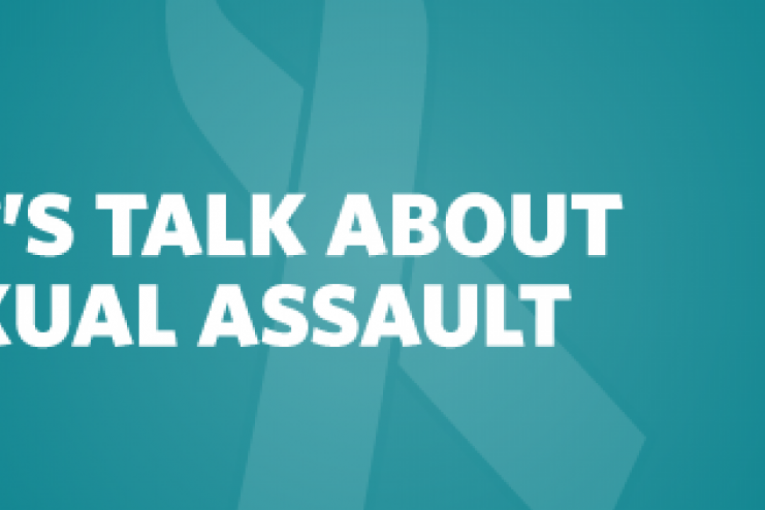
 By Ilse Atkinson
By Ilse Atkinson
This Friday UC Davis will launch “Let’s Talk About Sex,” a month-long campus campaign during National Sexual Assault Awareness Month this April. The campaign will focus on the goal of sexual assault prevention, and the promotion of mental and sexual health among students. It is a collaborative effort among sexual violence prevention and mental health organizations, with support from various clubs and community groups on campus. The campaign has brought campus organizations such as Students Against Sexual Violence at UCD, Associated Students of the University of California, Sexual Assault Awareness Advocacy Committee, and Gender and Sexuality Commission together to combat issues of sexual violence.
The campaign has been part of an effort by the Student Campus Climate Review Team (SCCRT) to coordinate interaction and collaboration among the many groups on campus who work towards sexual assault prevention and sexual health. Earlier this academic year, the SCCRT headed the campus-wide Red Zone campaign, aimed at bringing awareness to the prevalence of incidents of sexual violence during the first six weeks of the school year. This quarter, SCCRT has planned talks, workshops, movie screenings, art exhibitions and other events throughout the month of April for the “Let’s Talk about Sex” campaign, with the overarching goal of increasing awareness of sexual violence and health.
Campaign coordinator Georgia Savage, who is chairman of SCCRT and an ASUCD senator, has been able to coordinate this effort through connections with various groups on campus, and through enlisting the support of other ASUCD senators. SCCRT benefited from previous experience working with the Gender and Sexuality Commission, the Women’s Resource and Research Center, and other groups, but also made it a point to reach out to other student groups. Savage remarked, “Some people contacted me, some people I contacted. For example I knew of high-risk groups such as Greek life and athletics and really wanted to make an effort to get them involved.”
The campaign is made up of a series of events and workshops that each focus on a specific facet of sexual health, education, or violence prevention. A screening of the documentary The Hunting Ground, about sexual violence at universities, is being hosted by Students Against Sexual Violence in collaboration with students from UCD Greek life. A poetry open mic hosted by SickSpits, a mixed medium student art exhibition, and a dance party where attendees will have access to STD/STI (sexually transmitted diseases or infections) testing have also been planned. The campaign has also organized local Davis iterations of larger national or annual events such as Take Back the Night and Denim Day.
Workshops and talks will be hosted on topics such as consent, victim advocacy, and the intersection of sexuality with issues of race and identity, the majority of which have been organized by students and student groups. Organizations including the Indian Student Association, the African Diaspora community, the APIDA (Asian, Pacific Islander, Desi American) community, La Raza Cultural Days, and the Multicultural Immersion Program have workshops scheduled throughout the month. Each of these events may be promoted individually, but the campaign also hopes to increase attendance by posting a publically accessible calendar of events at http://ltas-ucd.squarespace.com.
Savage has also made it a point to prioritize incorporating the mental health aspect of the campaign. According to Savage, “It was really important to me that we had mental health involved as well because I feel like it’s really just not talked about as much, sexual assault specifically, and its relation to mental health. And in a lot of cases that leads to survivors taking their lives as well, and that’s almost never discussed.”
The campaign is working with mental health organizations to to promote use of the mental and sexual health resources available to students at UC Davis. The main mental health student organizations involved with “Let’s Talk About Sex” include NAMI (National Alliance on Mental Illness) and Active Minds, both of which work to fight social stigmas attached to issues of mental health on campus, and Out of Darkness, a student group committed to suicide prevention. One goal of the campaign has been to have a “self care” event at least once per week, working in collaboration with the mental health organizations to provide peer support, stress relief and access to mental health resources for students involved.
Savage describes her main goal behind organizing the campaign as a way of starting a conversation about sex and sexual assault. The name of the campaign, “Let’s Talk about Sex,” speaks to that goal. Campaigns like this one are responding to disturbing statistics that reflect the current prevalence of sexual violence at universities. UC Davis is far from immune to this issue; in 2014, a Washington Post survey of universities found that UC Davis had the fifth highest number of reported forcible sex offenses in the nation.
Savage describes her motivations as “honestly, just to start a conversation about sexual assault because the statistics are really shocking, and people don’t realize the extent to which this is occurring. It has been referred to as an epidemic, specifically on college campuses, and I would agree with that.”
Ilse Atkinson is a UC Davis Student and a Vanguard intern